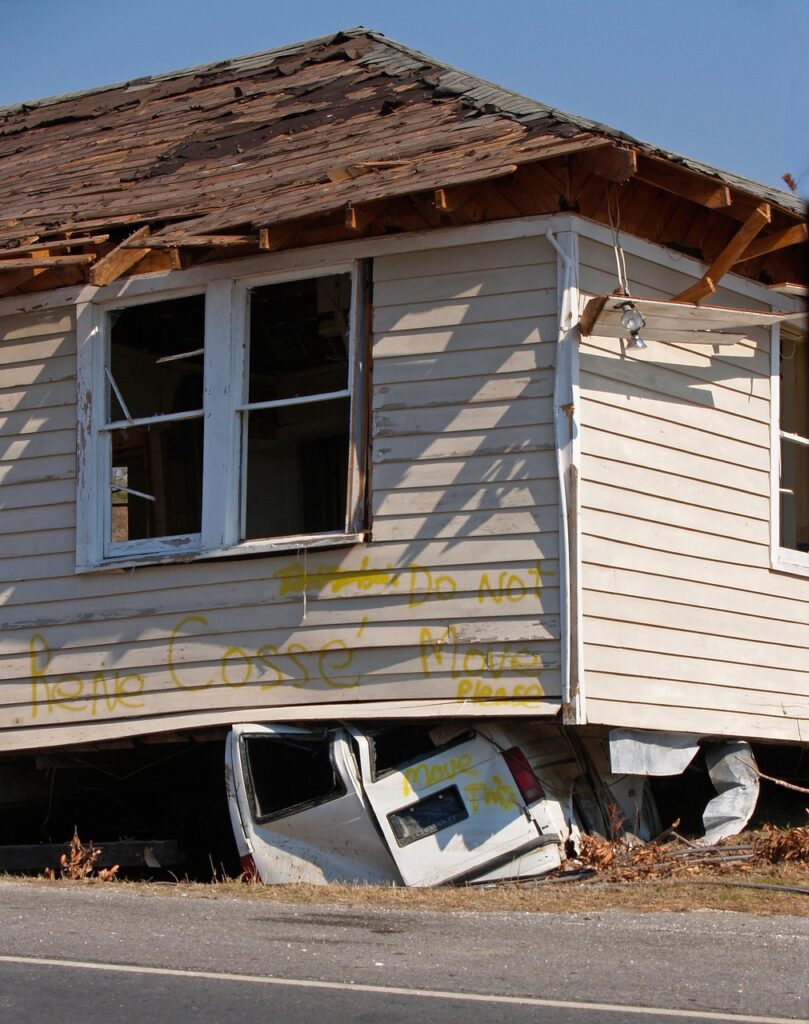Understanding Home Insurance Coverage
Home insurance offers protection for your property and belongings. It includes various coverages that protect against fire theft and some weather-related damage. However standard home insurance does not usually include flood damage. Knowing this limitation helps you avoid costly surprises when a flood strikes your home or surrounding area.
What Is Considered Flood Damage?
Flood damage refers to water damage caused by natural flooding events. This includes water entering your home due to heavy rain river overflow or coastal storms. It also covers flash floods or snowmelt that causes water to flow into your property. Any water damage from inside issues like burst pipes does not fall under flood damage.
Want to know what your policy protects? Read What Does Homeowners Insurance Actually Cover? and compare it with What Does Renters Insurance Actually Cover?. Also check the Best and Worst Homeowners Insurance Companies before you choose a provider.
Explore the Difference Between HMO and PPO and compare Term vs Whole Life Insurance. For drivers check Auto Insurance Quotes or find the Best Full Coverage Auto Insurance in 2025. Visit Insurance.com for more insights.
Does Standard Home Insurance Cover Flood Damage?
Most standard home insurance policies exclude flood damage coverage. Insurance providers see flooding as a high-risk event. To stay protected you must purchase separate flood insurance. Without this added policy you may pay for repairs and losses out of pocket which can be financially overwhelming.
Why Flood Insurance Is Important
Flood insurance helps you recover from the financial impact of a flood. It covers structural damage to your home and may include belongings like furniture and appliances. Many homeowners in low-risk areas believe they do not need it. Floods can occur anywhere so having coverage provides peace of mind and security.
Where to Buy Flood Insurance
You can buy flood insurance through the National Flood Insurance Program or private insurers. NFIP is managed by FEMA and offers basic flood coverage. Private insurers may offer broader protection and higher coverage limits. Make sure to compare both options to choose the best fit for your home and budget.
What Flood Insurance Typically Covers
Flood insurance covers damage to the building structure and your personal belongings. It usually includes floors walls electrical systems and appliances. Items like furniture electronics and clothing may also be covered. However certain valuables like jewelry or art might need additional policies. Always read the fine print before purchasing.
What Flood Insurance Does Not Cover
Some items are excluded from flood insurance policies. These include landscaping vehicles and temporary housing during repairs. Mold or mildew resulting from negligence may also be denied. Basement contents are limited and certain outdoor structures may not be protected. Understanding exclusions helps set realistic expectations.
Cost of Flood Insurance
Flood insurance costs vary based on risk level location and coverage limits. Homes in high-risk zones often pay more. On average homeowners may spend a few hundred to over a thousand dollars annually. Installing flood-resistant features may lower your premiums. Some providers offer discounts for homes with proper elevation and drainage systems.

Pros and Cons of Flood Insurance
| Symbol | Pros | Symbol | Cons |
|---|---|---|---|
| + | Financial protection | – | Additional monthly cost |
| + | Peace of mind during storms | – | Limited coverage in some areas |
| + | Helps recover faster | – | Does not cover all property types |
| + | Mandatory in high-risk zones | – | Waiting period before activation |
Tips to Reduce Flood Damage Risk
Take simple steps to reduce the chance of flood damage:
- Elevate appliances and electrical outlets
- Install sump pumps and check valves
Regular maintenance and proper landscaping also help control water flow around your home. These preventive actions can save money and stress during a flood emergency.
How to File a Flood Insurance Claim
Start by contacting your insurer as soon as flood damage occurs. Take photos and document all damage. Keep records of expenses and repairs. An adjuster will inspect the property and determine the payout. Respond quickly to avoid delays and always review your policy before disaster strikes.
Difference Between Water and Flood Damage
Water damage usually comes from inside sources like broken pipes or leaks. It is generally covered under a standard policy. Flood damage results from natural sources and requires separate coverage. Knowing the difference helps ensure you have the right insurance when problems arise.
Who Needs Flood Insurance
Anyone living in flood-prone or low-lying areas should have flood insurance. Even if your location is not high-risk floods can still occur. Mortgage lenders often require it in special flood zones. Homeowners renters and even business owners can benefit from extra protection.
Federal Mandates on Flood Insurance
Certain properties in designated flood zones must have flood insurance by law. Lenders also require coverage before issuing federally backed mortgages. Failure to carry insurance may result in fines or loan denial. Understanding local requirements ensures compliance and financial safety.
When Flood Insurance Becomes Effective
Most policies have a waiting period usually 30 days. This means you cannot buy coverage during a storm warning and expect it to start immediately. Plan ahead and do not wait until it is too late. Knowing the waiting period prevents gaps in protection.
Misconceptions About Flood Insurance
Some people believe flood insurance is only for coastal homes. Others assume government aid will cover losses. These are myths. Floods happen inland too and government help is often limited. Having your own coverage is the best way to ensure full protection.
Common Flood Hazards
Common hazards include flash floods heavy rain hurricanes and snowmelt. Blocked drains and poorly maintained infrastructure make things worse. Living near rivers or coasts increases your exposure. Assess your surroundings and take proactive steps to protect your home and family.
Best Time to Buy Flood Insurance
The best time to buy is before flood season begins. You avoid delays from the waiting period and start coverage early. Review your policy every year to ensure it matches your current needs. Planning ahead offers better protection and lower stress.
Financial Support Options After a Flood
Besides insurance you might qualify for disaster grants or low-interest loans. These are not guaranteed and take time to process. Insurance provides the fastest and most reliable financial help. Always use insurance as your primary recovery plan to get back on your feet quickly.
Internal Link to More Resources
To explore more helpful insurance guides visit Best Insure Info and stay informed about smart coverage options for every situation.
Final Thoughts on Flood Insurance
Flood insurance gives homeowners control over their recovery. It adds protection that standard policies lack. With the rise in extreme weather events more homes are at risk than ever. Investing in coverage now can save time money and heartache in the future.
✅ What Is Flood Insurance?
✅ Is Flood Insurance Included in Regular Home Insurance?
No it is not. Regular home insurance does not include flood damage. You must buy a separate policy to stay protected against flooding events.
✅ How Do I Know If I Need Flood Insurance?
Check if you live in a flood-prone area or flood zone. Use online tools or contact your local authority. Even areas with low risk can flood so coverage may still be smart.
✅ What Is the Waiting Period for Flood Insurance?
Most policies have a 30-day waiting period. That means you need to buy flood insurance before bad weather is forecasted. Do not wait until the last minute to purchase.
✅ Does Renters Insurance Cover Flood Damage?
No renters insurance does not usually include flood coverage. Renters must buy separate flood policies to protect their belongings from water damage.
For more useful insurance advice and updates visit Best Insure Info.






